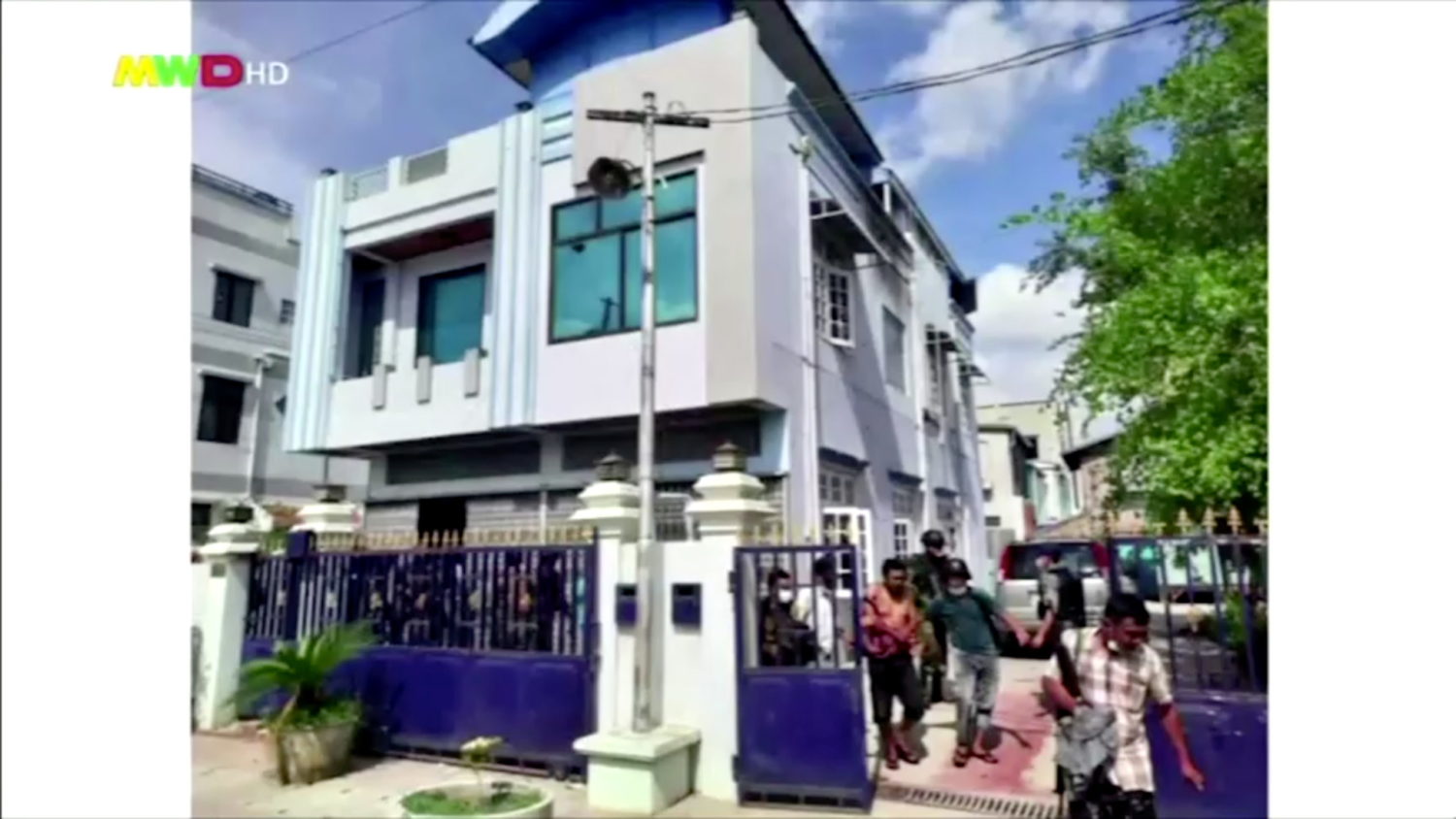
(Reuters) – Myanmar security forces backed by armored vehicles clashed on Tuesday with a newly formed militia group in the second-biggest city of Mandalay resulting in at least two casualties, according to members of the group and media reports.
Since the army seized power on Feb. 1 and removed the elected government of Aung San Suu Kyi, the security forces have put down protests opposing military rule. In response, groups of opponents of the coup known as people’s defense forces have sprung up across Myanmar.
Up to now, fighting involving lightly armed militias has been mainly confined to small towns and rural areas, but a group claiming to be Mandalay’s new People’s Defense Force said its members responded after the army raided one of its bases.
“The fight has started. There will be more fights,” a member of the militia identified as Captain Tun Tauk Naing said by telephone.
The sound of repeated gun fire could be heard in video footage taken by a resident of the area.
About 20 soldiers had carried out the raid on the group sparking a gun fight with the military which deployed three armored cars to the area, Myanmar Now reported.
Another official from the militia group told the Mizzima news portal that six of its members had been arrested and two soldiers had been killed.
A spokesman for the junta did not answer calls seeking comment.
The army-owned Myawaddy Television (MWD), in a report on its Telegram message channel, said security forces had raided a house and “armed terrorists” had fought back with small weapons and bombs.
It said four “terrorists” had been killed and eight arrested while some security forces were seriously hurt.
Myanmar’s military rulers have branded a shadow National Unity Government opposing the junta a terrorist group and blamed it for bombings, arson and killings.
In earlier incidents in other parts of Myanmar, the army has responded with artillery and air strikes after militia groups launched attacks on soldiers, with casualties on both sides and tens of thousands of people displaced from their homes.
The United Nations General Assembly on Friday called for a stop to the flow of arms to Myanmar and urged the military to respect the results of a November election and release political detainees, including Suu Kyi.
On Saturday, Myanmar’s foreign ministry released a statement rejecting the U.N. resolution, which it said was “based on one-sided sweeping allegations and false assumptions”.
Security forces have killed at least 873 protesters since the coup, according to the Assistance Association for Political Prisoners activist group. The junta disputes that figure.
(Reporting by Reuters Staff; Writing by Ed Davies; Editing by Robert Birsel)



